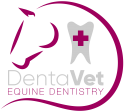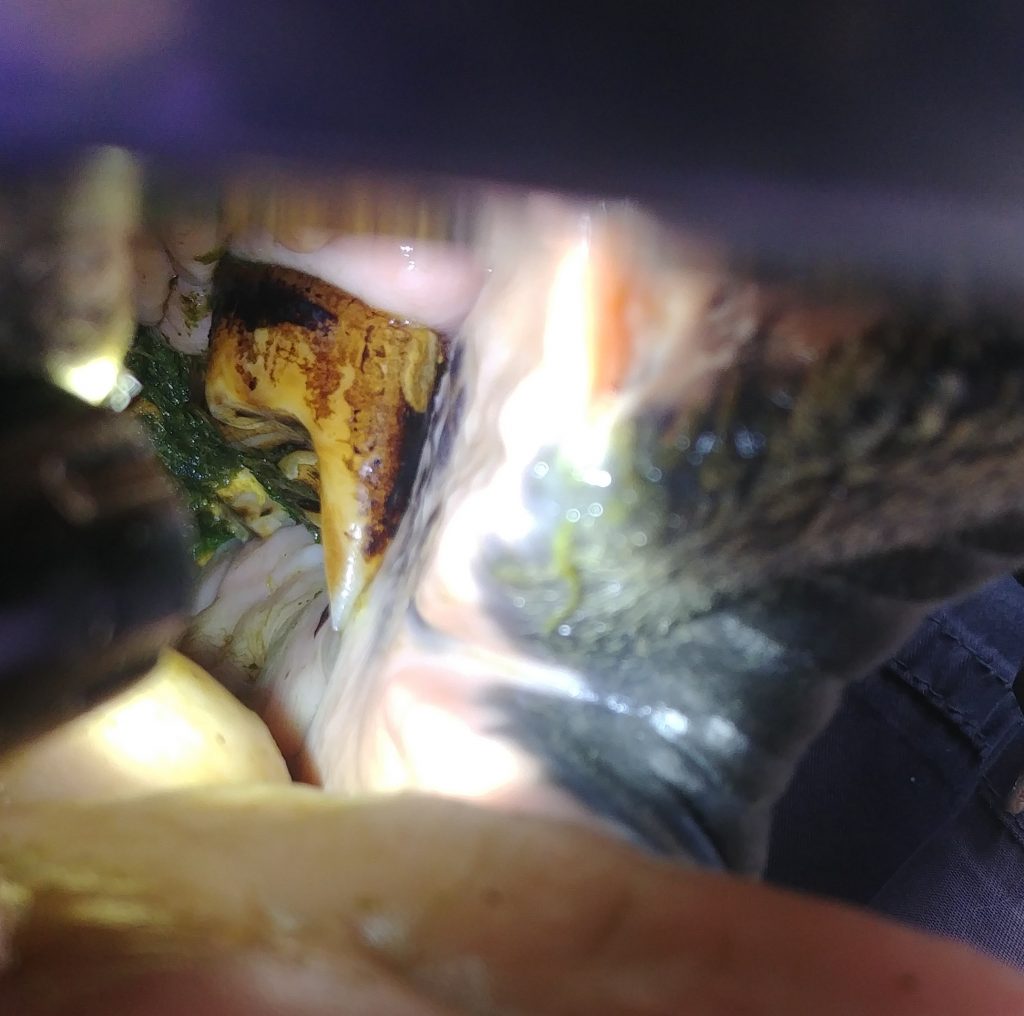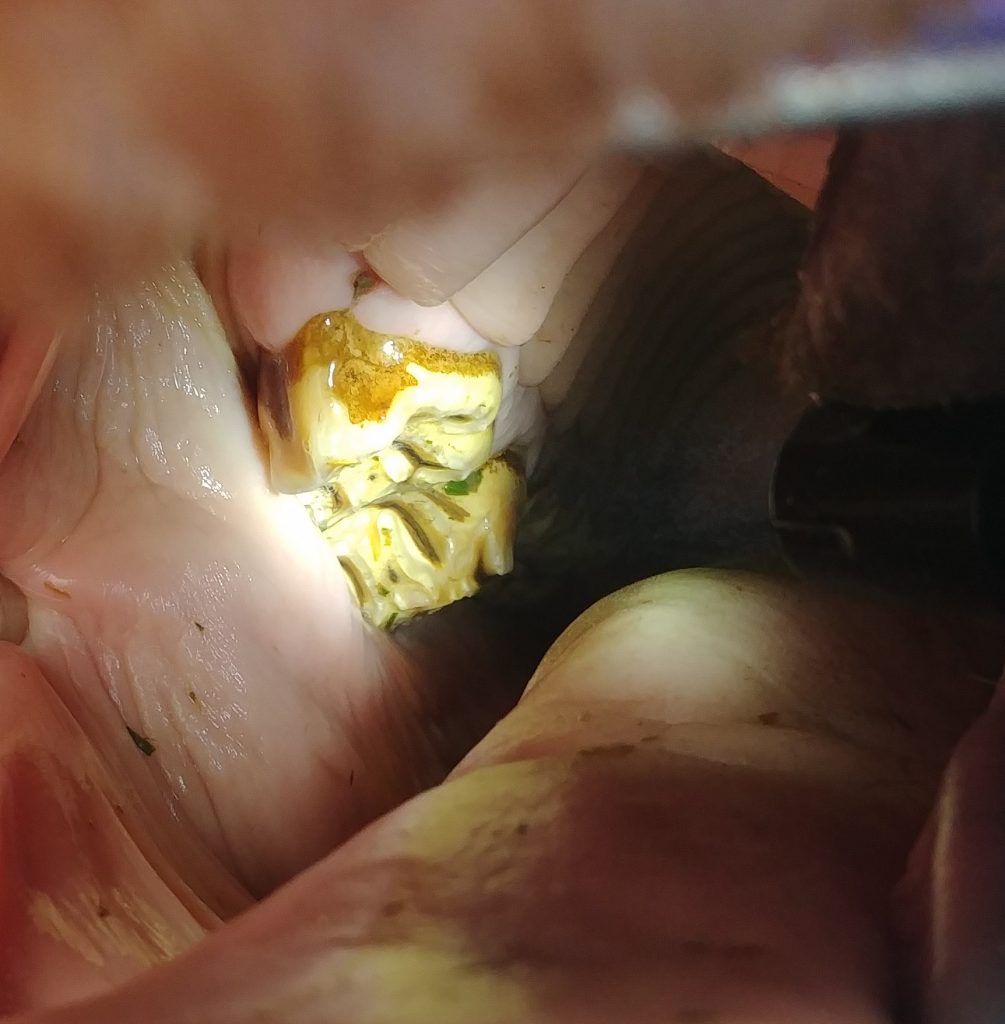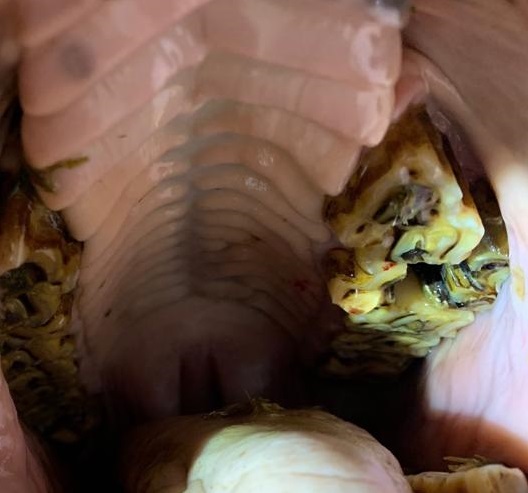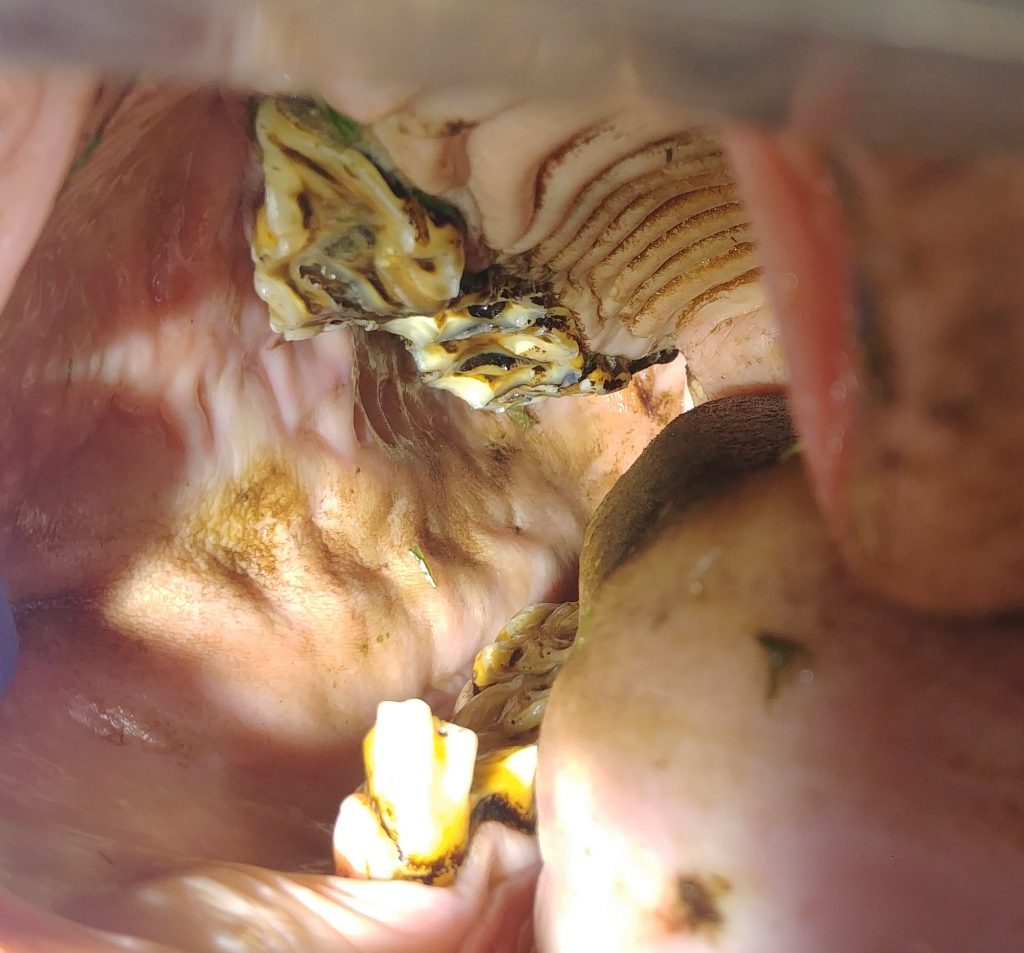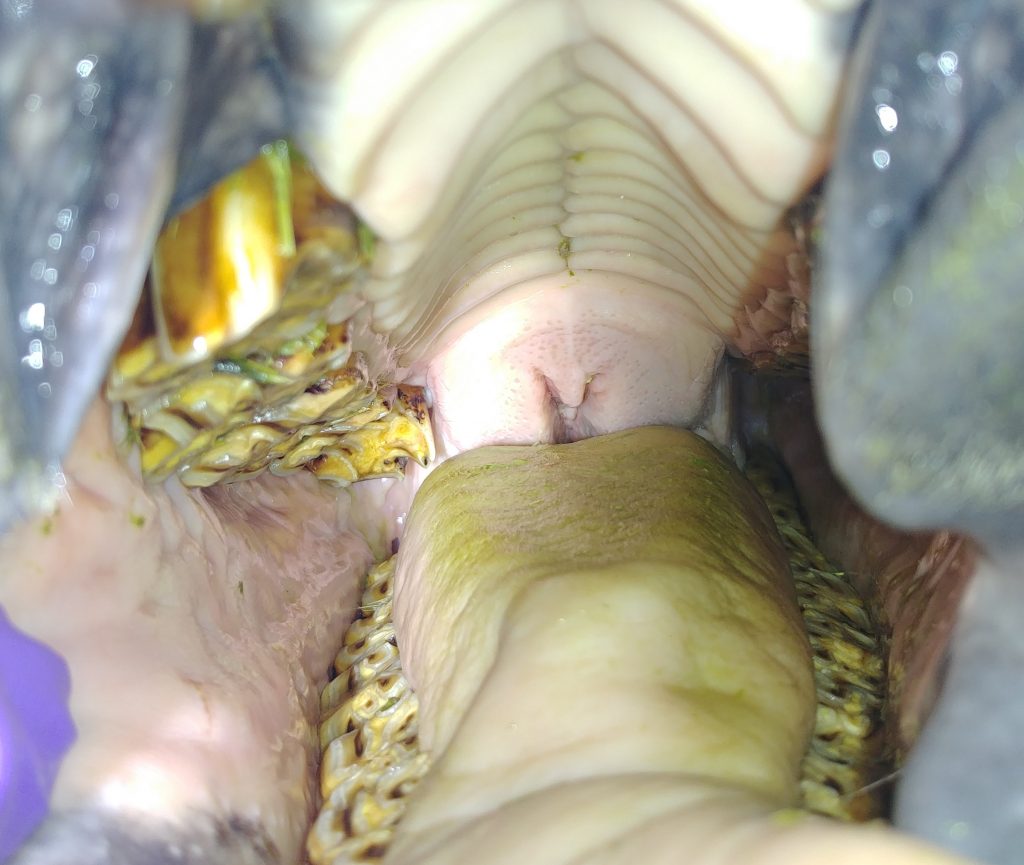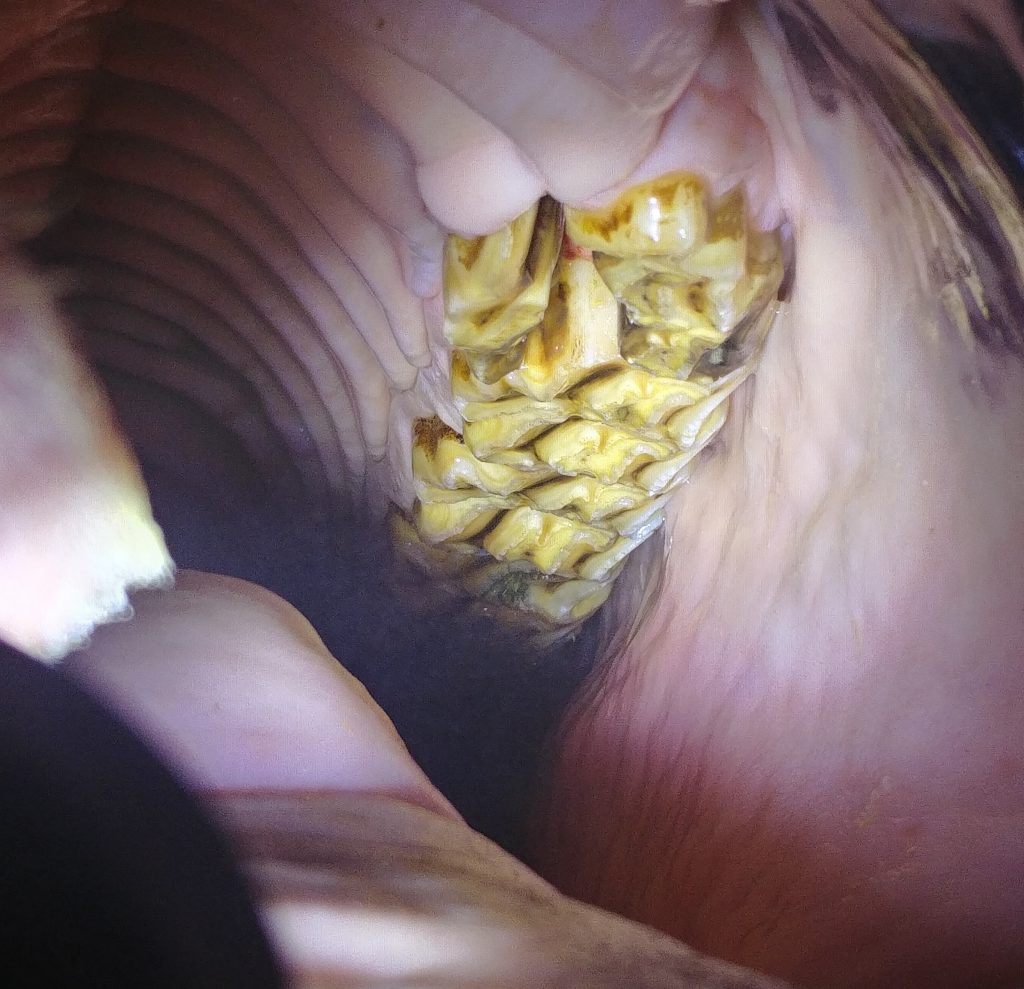Oral Examination
Regular and thorough oral care is an essential and integral part of your horses’ well-being. Dental checks should be part of your horse’s routine maintenance programme (alongside vaccination, worming and farriery) to help identify any developing problems early on and enable them to be treated and take proactive steps to prevent further problems and discomfort to your horse.
You cannot tell what is going on in the mouth just by looking at the horse’s condition. Horses are prey animals and are programmed to hide pain so as not to appear ’weak’ to predators in the wild. When it comes to dental disease and oral discomfort they will simply adjust how they chew to avoid the painful areas of their mouth and manage to do this until that pain gets so severe they cannot hide it any longer.
Horses can have considerable dental pathology and yet often appear symptomless from the outside, even in horses with moderate to severe mouth lacerations and dental disease, the desire to eat will be maintained and the problems may not be obvious without a full dental examination. Since we cannot rely on the horse to inform us of dental pain, it is vital that a regular, thorough dental examination is performed for the early detection and treatment of any significant findings.
“Optimum oral health for optimum comfort and performance”
Dental pain can cause a wide range of problems, from difficulty eating, weight loss, lethargy and colic, to performance related problems, resisting a contact, difficulty bending, head shaking and bucking. Your horse will not work comfortably if they have any sharp teeth causing trauma in the mouth or overgrowths that restrict the free movement of the jaw.
Recent studies have shown that up to 80% of all domestic horses have significant dental abnormalities
Primarily, the aim of the oral examination is to identify if the horse is comfortable in their mouth and if not, address those issues immediately. By taking a proactive approach you are keeping your horse’s teeth in good health and working order which is integral to your horse’s overall health and comfort.
To perform an oral examination of your horse’s mouth, we ask for:
- A clean, empty stable or enclosed safe space with a firm even floor and avoiding low ceilings.
- A bucket of clean water (warm is preferable but not essential)
- A loose fitting headcollar with a leadrope
- A handler to be present, a hard hat is advisable
Complete detailed oral examinations include:
- Asking questions about your horse’s age, diet, riding discipline, any performance problems, bitting behaviour, how your horse is eating, their character and any previous dental history, etc
- Examining the outside of the horse’s head, jaw, cheeks, lips, temporomandibular joint (TMJ) and incisors
- Rinsing out your horse’s mouth to be able see their teeth not what they’ve eaten!
- Using a mouth speculum (“Gag”) to open your horse’s mouth safely. Without this, only the first couple of teeth can be examined. We have a specially designed smaller gag for miniatures and donkeys which is adapted to their smaller heads and mouths
- Resting your horse’s head on a padded headstand to support their head while they are sedated and examined, keeping them comfortable and this allows better visualisation and access into their mouth
- Using a bright light source (surgical headlight) to look right to the back of the horse’s mouth and examine the tongue and bars of the mouth and the insides of the cheeks
- Palpating (feeling) all of your horse’s teeth with our fingers
- Using mirrors, picks and probes to check every tooth in close detail and identify and assess any problem areas. We also check the gums and all soft tissues
- Recording any abnormalities and discuss the findings and points for concern
- Advising on preventative measures and developing a treatment plan tailored to your horse’s requirements
After your horse’s assessment you will receive a digital dental chart emailed to you for your records, including any dietary or management recommendations.
